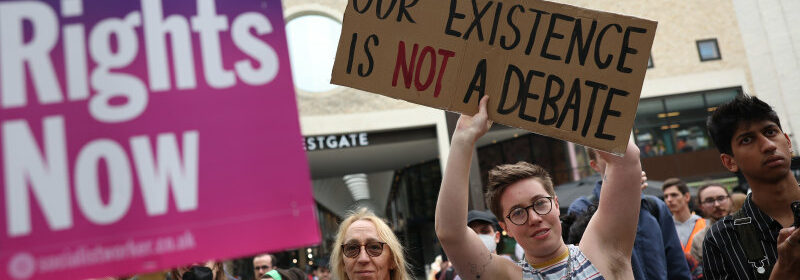Philosophers cry freedom in gender wars

Save articles for later
Add articles to your saved list and come back to them any time.
Leading Australian philosophers have waded into the gender wars engulfing university campuses here and the United Kingdom, calling for stronger protection of academic freedom and robust debate of issues relating to sex, gender and gender identity.
Writing in response to a boycott campaign by student and trans rights activists against University of Melbourne feminist Holly Lawford-Smith, a group of 20 academics from seven universities backed her right to teach from a gender critical perspective without harassment or interference.
A group of fellow academics are backing the right of Holly Lawford-Smith to challenge transgender ideology.Credit: Joe Armao
“Our support for Lawford-Smith’s right to teach and research in this field is neither an endorsement nor a criticism of the substance of her views,” the group wrote in a column published this week by The Times Higher Education.
“But, in relation to this issue, it seems clear that university leaders and academics need to do more to foster climates of genuine academic freedom.
“Lawford-Smith is one of several academics globally who have faced censure, campaigns of harassment and deplatforming for their gender-critical views. Likewise, the University of Melbourne is one of several universities globally that has had legal claims lodged against it by gender critical scholars.”
Gender critical scholars argue that women are determined by sex, rather than gender or gender identity.
“When it comes to debates about sex versus gender identity, people in positions of authority must avoid conflation of a rightly non-negotiable commitment to LGBT inclusion with endorsement of the view that gender identity is more important than sex,” the authors wrote.
“This conflation lies behind claims that those who hold or express gender-critical views are de facto ‘transphobic’ or make campus unsafe for trans people.”
The authors of the column include philosophy professors at the University of Melbourne, University of Sydney, Monash University, ANU and Charles Sturt University.
Equality Australia chief executive Anna Brown said views that “deny the lived experience of trans and gender diverse people” do not allow for informed and respectful discussion.
“There is always an opportunity to engage with people and ideas with respect and compassion, but it makes it very hard to do this when one side denies the existence of the other or mischaracterises them as threats and frauds,” she said.
This masthead last month revealed that Lawford-Smith, the target of a two-year campaign by trans activists which escalated following her involvement in the Let Women Speak event gatecrashed by neo-Nazis, has lodged a WorkSafe complaint against the University of Melbourne claiming she has been bullied and not provided a safe workplace.
In her complaint, Lawford-Smith claims that a university investigation into her attendance at the rally and comments on social media undermined its commitment to academic freedom. The investigation found she had no disciplinary case to answer.
University of Melbourne provost Nicola Phillips last month said the universities had to balance their “resolute” commitment to academic freedom and freedom of the expression with the responsibility they had to provide a workplace free of harassment and intimidation.
Student activists protest gender critical feminist Kathleen Stock outside the Oxford Union.Credit: Eddie Keogh
Vicki Thomson, the chief executive of the Group of Eight – also known as the sandstone universities – said all her members strongly asserted the importance of academic freedom.
“Progress depends on our capacity to develop and challenge new ideas, to discuss, debate and at times disagree as we endeavour to contribute to a more cohesive and inclusive society,” she said.
“Upholding freedom of expression is, at all times, essential to the core mission of our universities, as is the right of students and staff to feel and be safe on our campuses.”
The tension between academic freedom and transgender inclusion reached a flashpoint this week at the Oxford Union, a 200-year-old debating society in the heart of the university town, where activists glued themselves to the floor to protest a speaking event involving Kathleen Stock, a gender critical academic and author.
The furore over Stock, whose writings and public commentary are lauded by J.K. Rowling and other prominent figures in the gender critical movement, prompted an intervention by UK Prime Minister Rishi Sunak, who said that students should be allowed to hear and debate her views.
In an interview with this masthead, Stock said universities needed to set the rules about how ideas are debated – not student activists.
“They see themselves in a pastoral role and there is increasing pressure on universities to look after students, particularly vulnerable students,” she said. “But it is not helping vulnerable, anxious people to give in to them all the time and let them set the rules about what gets said and what can’t be said on campus.”
The Morning Edition newsletter is our guide to the day’s most important and interesting stories, analysis and insights. Sign up here.
Most Viewed in National
From our partners
Source: Read Full Article

